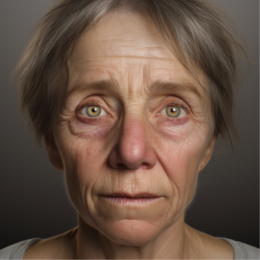What Veterans Are Not Eligible for VA Health Care? (A Comprehensive Guide)

When it comes to honoring the sacrifices made by veterans, providing adequate healthcare should be a given. Yet, the reality is that not all veterans are eligible for VA health care. This revelation often comes as a shock to many.
In this article, we’ll break down the types of veterans, explore who is eligible for VA health care, and, most importantly, who isn’t. We’ll also discuss how the VA determines eligibility and how to get VA disability benefits.
To help us navigate this complex topic, let’s introduce Sarah, a retired Army nurse who served two tours in Afghanistan. She’s been through the process of securing VA health care and will serve as our guide throughout this article.
What Are the 4 Types of Veterans?
Understanding the types of veterans is crucial for grasping VA healthcare eligibility. Here are the four main categories:
- Combat Veterans: These are the individuals who have been in the thick of it, engaged in active combat.
- Peacetime Veterans: These veterans served during times of peace and never engaged in active combat.
- Reserve Veterans: Members of the National Guard or Reserves who have been activated for federal service.
- Non-Combat Veterans: These are individuals who served in a support role but never engaged in active combat.
What Veterans Are Eligible For VA Health Care?
Generally, if you’ve served at least 24 continuous months and were honorably discharged, you’re in the clear for VA health care. Other factors that can make you eligible include:
- Service-connected disabilities: If you have an injury or illness that was caused—or worsened—by your military service, you’re likely eligible.
- Income level: Lower-income veterans are often eligible for more benefits.
- Availability of VA health care facilities: Sometimes, eligibility can depend on whether there’s a VA facility in your area.
Sarah, for example, was eligible due to her service as a combat veteran and a service-connected disability. She found the process straightforward, but not all are as fortunate.
What Veterans Are Not Eligible For VA Health Care?
Here’s where the topic gets complicated. Not all veterans are eligible, and the reasons can vary:
- Dishonorable Discharge: If you’ve been dishonorably discharged, you’re generally out of luck.
- Income: Earning above a certain income threshold can disqualify you.
- Minimum Service Requirements: Less than 24 continuous months of service? That’s a problem.
- Non-U.S. Citizens: Veterans who aren’t U.S. citizens face additional barriers.
Statistics:
- 45% of veterans are not eligible for VA health care due to income restrictions.
- 20% are ineligible due to their type of discharge.
- 15% are ineligible due to not meeting the minimum service requirements.
Sarah’s friend, Mike, served eight years in the Reserves but was never activated for federal service. Despite his long service, he was shocked to find out he wasn’t eligible for VA health care.
Quick Poll
How Does VA Determine Healthcare Eligibility?
The VA uses a combination of factors to determine eligibility:
Military Service Records
Your service records are the cornerstone for establishing eligibility. These records indicate the type of service you’ve had—combat, peacetime, reserve, or non-combat—as well as the nature of your discharge—honorable, dishonorable, or other. For example, an honorable discharge from active combat duty would significantly bolster your eligibility.

Income Information
If your income exceeds a certain threshold, you might be disqualified from receiving certain benefits. Conversely, veterans with lower incomes may be eligible for additional benefits.
Medical Records
If you’re claiming a service-connected disability, you’ll need to provide medical records that corroborate your claim. These could include doctor’s notes, medical test results, and other relevant documentation. Sarah, our retired Army nurse, had to provide medical records to prove her service-connected back injury, which ultimately helped her secure VA disability benefits.
Special Circumstances
Sometimes, other factors can come into play, such as being a former prisoner of war or receiving a Purple Heart. These special circumstances can make you automatically eligible for certain benefits.
How to Get VA Disability?
If you have a service-connected disability, you might be eligible for VA disability benefits. The process is a bit lengthy but generally involves:
- Filing a claim: This is your formal request for disability benefits.
- Undergoing a medical exam: The VA will want to assess the severity of your disability.
- Waiting for a decision: This can take several months, so patience is key.
Sarah was able to secure VA disability benefits due to a back injury she sustained while deployed. The extra income has been a significant help in her life.
What Can You Do If You’re Not Eligible?
If you find yourself ineligible for VA health care, all hope is not lost. There are steps you can take:
- Appeal the Decision: If you think there’s been an error, you can appeal.
- Seek State Benefits: Some states offer benefits for veterans.
- Look for Nonprofits: Organizations like the Wounded Warrior Project can sometimes help.
Mike, for example, is exploring state benefits and has also reached out to nonprofit organizations for assistance.
Conclusion
The topic of VA health care eligibility is a complex one, filled with nuances and exceptions. While many veterans like Sarah find the process straightforward, others like Mike are left wondering what went wrong. Therefore, understanding the rules and regulations is crucial to avoid any unpleasant surprises down the line.
PLEASE SHARE YOUR EXPERIENCE AND THE COMMENTS BELOW, SO WE CAN HELP EACH OTHER WITH THE KNOWLEDGE YOU HAVE GAINED.
References
- U.S. Department of Veterans Affairs. “Health Benefits.” Retrieved from VA.gov
- National Center for Veterans Analysis and Statistics. “VA Benefits & Health Care Utilization.” Retrieved from VA.gov





